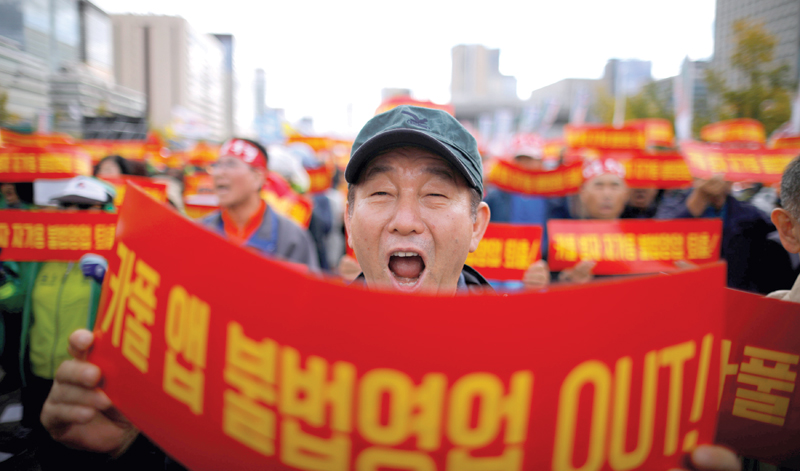

Ju-min Park, Hyunjoo Jin -
When Choi Ba-da pitched his car-sharing firm Luxi to Hyundai Motor officials in 2017, he told them there would be no future for South Korea’s top automaker if it failed to embrace emerging technologies.
His pitch worked: Hyundai agreed to buy a 12 per cent stake in Luxi for $5 million, its first investment in a car-sharing firm as it joined rivals in the race for new-age transportation.
But six months later, Hyundai sold its stake after thousands of angry taxi drivers, worried about their jobs, threatened to boycott Hyundai cars, Choi said. Hyundai officials say they were also wary of laws limiting car sharing in South Korea.
Hyundai’s breakup with Luxi illustrates how rigid regulations, strong labour unions and a risk-averse culture among South Korea’s giant family run conglomerates, or chaebol, have hindered the growth of start-ups in Asia’s fourth-largest economy.
President Moon Jae-In’s administration says the country’s decades-old growth model, powered by a handful of large exporters such as Hyundai and Samsung, has reached its limit in the face of Chinese competition and rising labour costs.
To offset slowing growth in sectors such as autos, ships and chips, it created a new ministry for start-ups last year and has boosted funding to cultivate new technologies.
But the government has been too slow to remove cumbersome regulations for start-ups, wary of upending the country’s economic order or upsetting powerful labour unions, according to interviews with entrepreneurs, investors and executives.
That has left South Korea surprisingly resistant to disruptive technologies despite its tech-savvy image, they say.
“After agonising, Hyundai officials told me that they had to go slow with the service, before eventually pulling out,” Choi said. “But how on earth can a startup go slow?” In a statement, Hyundai said it sold its stake in Luxi as the investment “did not fit a business model the company pursued”, without elaborating.
Hyundai’s chief innovation officer Youngcho Chi also said South Korean restrictions on ride-sharing to unspecified “commuting hours” as one reason and said the automaker had concluded that Luxi was not going to work out.
Instead, Hyundai pumped $275 million into Singaporean ride-hailing firm Grab this year. Hyundai and Samsung say they invest in both local and overseas startups.
Close to the company’s headquarters, South Korean startups are easier to communicate with, Hyundai said. Samsung said it has been running a startup support programme for five years to raise local entrepreneurs.
Still, some say chaebol are moving too slowly. “The Korean success has been built on a fast-follower strategy, but Chinese rivals are catching up very fast,” said Hwang Sungjae, a co-founder of Fluenty, a South Korean artificial intelligence startup acquired by Samsung Electronics last year.
“Companies now have no choice but to innovate and work with start-ups, but they are not investing quickly enough.” “I think Korean companies are at a great risk of falling behind.” Regulations are another challenge.
South Korean laws would entirely or partially block about 70 per cent of the world’s top 100 startups by investment size from bringing their services to the country, according to joint research by Google Campus Seoul and the Asan Nanum Foundation. Those include giants Airbnb, Uber, and China’s Ant Financial.
In February, top South Korean mobile messaging operator Kakao Corp bought Luxi for $25 million, but it remains stymied by carpooling regulations, and has yet to launch amid fierce protests from taxi drivers.
One protesting taxi driver set himself on fire and died last week, and unionised drivers say they plan a huge rally this week.
Kakao said it pushed back the launch schedule of its carpool service in the wake of the suicide.
Regulations also prohibit venture capital funds from investing in financial, real estate, accommodation and restaurant sectors in South Korea.
The government has proposed a new law to lift those restrictions, but a senior government official acknowledged it would be neither easy nor quick. “The bottom line is that we have to move towards innovation, but it takes a lot of time and is a difficult process to mediate existing interests,” official at the Ministry of SMEs and Startups said. — Reuters
Oman Observer is now on the WhatsApp channel. Click here



